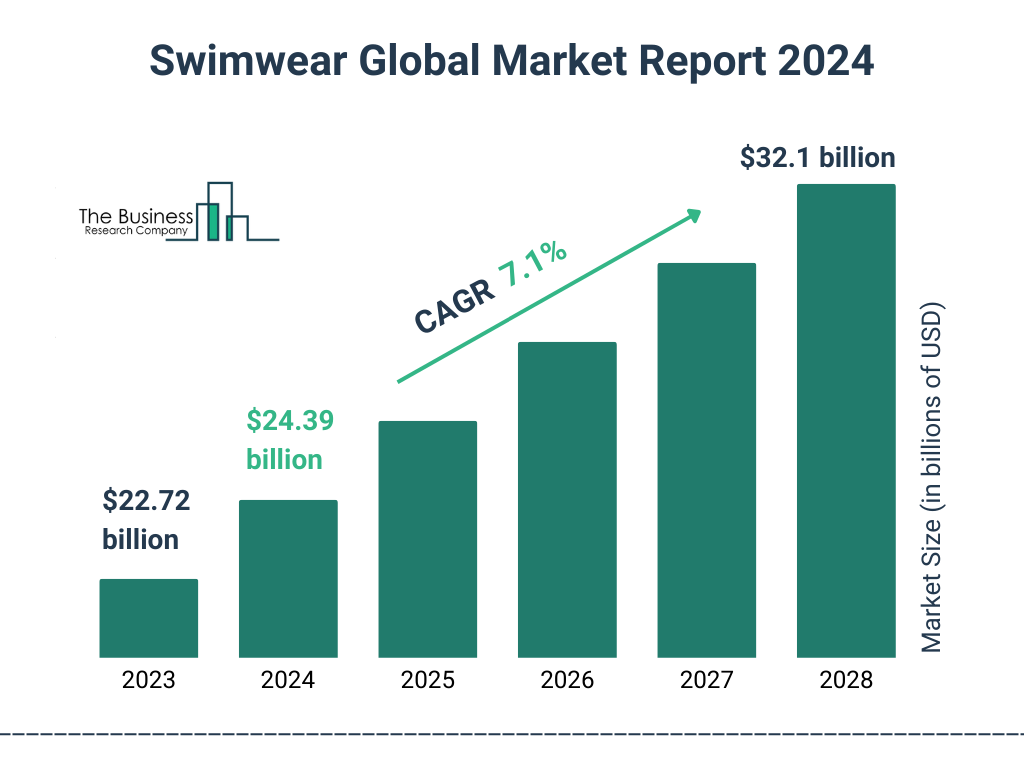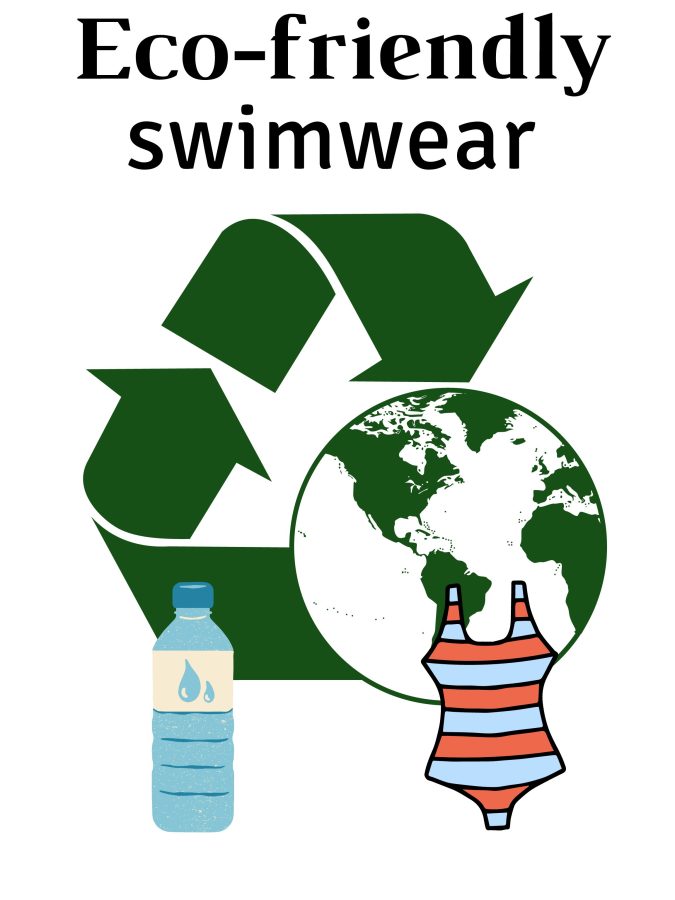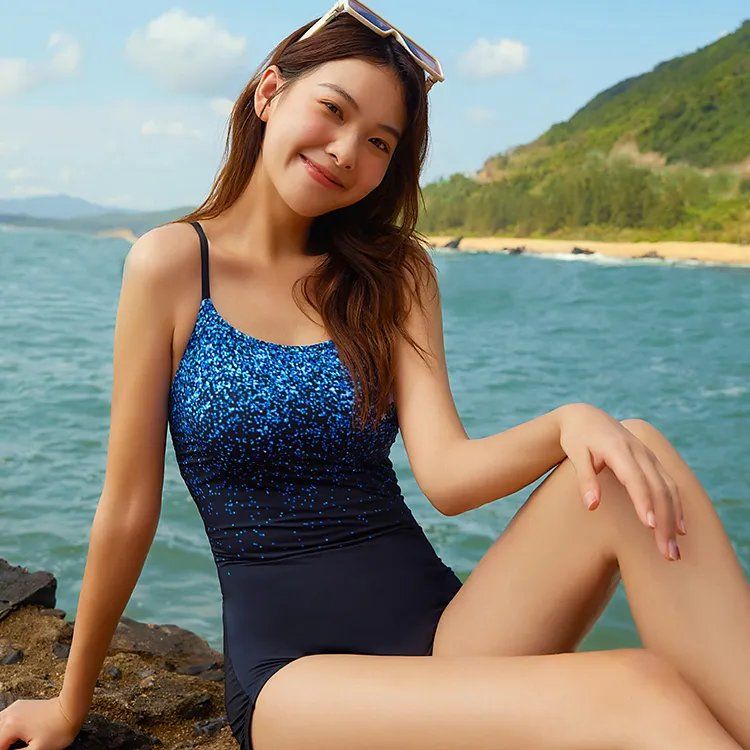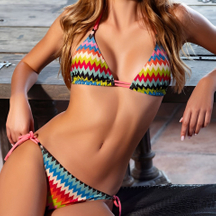Content Menu
● The Rise of Swimwear Manufacturing in South Africa
● Key Players in the South African Swimwear Market
● Sustainable Practices Among Manufacturers
● The Importance of Customization
● Challenges Facing the Industry
● The Future of Swimwear Manufacturing in South Africa
● Fashion Trends Influencing the Swimwear Market
>> Key Fashion Trends Include:
● Consumer Preferences Shaping the Market
● Market Challenges Ahead
● Conclusion
● Frequently Asked Questions (FAQs)
>> 1. What are some popular swimwear brands in South Africa?
>> 2. How do South African swimwear brands promote sustainability?
>> 3. Can I customize my swimwear from South African manufacturers?
>> 4. What materials are commonly used in sustainable swimwear?
>> 5. Are there any challenges faced by local swimwear manufacturers?
● Citations:
Swimwear is not just a necessity for those sunny beach days; it's a fashion statement that reflects personal style and sustainability. South Africa, with its stunning coastlines and vibrant culture, has become a hub for innovative swimwear manufacturers. This article delves into the diverse landscape of swimwear manufacturers in South Africa, highlighting their unique offerings, sustainable practices, and the booming market that caters to both local and international customers.
The Rise of Swimwear Manufacturing in South Africa
The swimwear industry in South Africa has seen significant growth over the past decade. This surge can be attributed to several factors:
- Local Demand: As domestic tourism increases, so does the demand for stylish and functional swimwear.
- Sustainability Trends: With a growing awareness of environmental issues, many manufacturers are adopting sustainable practices, using recycled materials and eco-friendly production methods.
- Innovation and Design: South African designers are gaining recognition for their creativity, producing unique pieces that stand out in the global market.

Key Players in the South African Swimwear Market
Several manufacturers are leading the charge in producing high-quality swimwear. Here are some notable brands:
- Pacer Swimwear: Based in Kwa-Zulu Natal, Pacer Swimwear is renowned for its locally manufactured swim caps and custom swimwear. The company prides itself on being women-owned and focuses on providing affordable quality products to its customers. Their commitment to local production allows them to maintain competitive pricing while ensuring high standards of quality.
- Sálti Swimwear: This brand is dedicated to ethical and sustainable practices. Sálti Swimwear designs are handmade in South Africa using locally sourced fabrics. They offer customizable options for customers, allowing them to choose styles, colors, and sizes that best suit their preferences.
- Gabrielle Swimwear: A luxury brand based in Cape Town, Gabrielle focuses on timeless designs made from high-quality materials. Their commitment to sustainability is evident as they use REPREVE fabric made from recycled plastic, appealing to environmentally conscious consumers.
- BeachCult Swim: Known for its unique silhouettes and vibrant prints, BeachCult emphasizes mindful production processes. The brand creates swimwear using recycled techno fabric, catering to young women who love the ocean.
- Lily Label: This woman-owned brand specializes in ethically made swimwear using ECONYL fabric, which is derived from regenerated nylon waste. Their designs aim to empower women while promoting sustainability.
Sustainable Practices Among Manufacturers
Sustainability is a key focus for many swimwear manufacturers in South Africa. Here are some common practices:
- Recycled Materials: Brands like January & June and Snow Swimwear utilize recycled plastics to create their products, significantly reducing their environmental impact.
- Ethical Production: Many companies ensure fair labor practices by supporting local artisans and providing fair wages.
- Eco-Friendly Packaging: Several brands are moving towards biodegradable or reusable packaging options to further minimize waste.

The Importance of Customization
Customization has become a significant trend in the swimwear industry. Many manufacturers now offer personalized options that allow customers to select styles, colors, and sizes that fit their individual needs. This approach not only enhances customer satisfaction but also reduces waste by ensuring that products meet specific demands.
Challenges Facing the Industry
While the swimwear manufacturing sector in South Africa is thriving, it faces several challenges:
- Competition from Imports: The influx of cheaper imported swimwear can make it difficult for local manufacturers to compete on price.
- Economic Factors: Fluctuations in the economy can affect consumer spending habits, impacting sales for local brands.
- Environmental Regulations: As sustainability becomes more critical, manufacturers must navigate complex regulations regarding waste management and material sourcing.
The Future of Swimwear Manufacturing in South Africa
The future looks bright for swimwear manufacturers in South Africa. With increasing consumer awareness about sustainability and a growing preference for locally produced goods, brands that prioritize ethical practices are likely to thrive. Additionally, as international markets open up post-pandemic, there is potential for South African swimwear brands to expand their reach globally.
Fashion Trends Influencing the Swimwear Market
The global swimwear market is expected to grow significantly over the coming years. According to industry reports, it was valued at approximately USD 23 billion in 2023 and is projected to grow at a CAGR of around 6.8% through 2030[1][2]. This growth is driven by evolving fashion trends that blend functionality with aesthetics.
Key Fashion Trends Include:
- Athleisure Influence: The rise of athleisure has blurred the lines between sportswear and casual wear. Consumers now seek swimwear that offers both style and performance features suitable for various activities beyond swimming[5].
- Body Positivity Movement: There is an increasing emphasis on body acceptance and diversity within the fashion industry. Swimwear brands are responding by offering a wider range of sizes and styles that cater to different body shapes[1][2].
- Innovative Fabrics: Technological advancements have led to the development of innovative fabrics that enhance comfort and performance. Features such as UV protection, chlorine resistance, and quick-drying capabilities have become essential selling points[5][6].

Consumer Preferences Shaping the Market
As consumer preferences evolve, so do the strategies employed by manufacturers:
- Sustainability Focus: More consumers are prioritizing eco-friendly products. Brands that utilize sustainable materials like ECONYL or REPREVE not only appeal to environmentally conscious shoppers but also differentiate themselves from competitors[4][6].
- Luxury Segment Growth: The demand for luxury swimwear is on the rise as consumers seek high-quality products that combine style with functionality. This trend has prompted established lingerie brands to launch new lines specifically tailored for swimwear[2][6].
- E-commerce Expansion: The growth of online shopping has transformed how consumers purchase swimwear. Brands are increasingly investing in e-commerce platforms to reach a broader audience while providing a seamless shopping experience[5][7].
Market Challenges Ahead
Despite its growth potential, the South African swimwear manufacturing sector faces several challenges:
- Economic Pressures: Rising inflation and decreased disposable income can limit consumer spending on non-essential items like swimwear[9].
- Supply Chain Disruptions: Global supply chain issues can impact material availability and increase production costs for local manufacturers[9].
- Competition from Imports: The influx of affordable imported swimwear continues to challenge local brands' market share[9].
Conclusion
South Africa's swimwear manufacturing industry is a vibrant mix of creativity and sustainability. With brands like Pacer Swimwear, Sálti Swimwear, and Gabrielle leading the way, consumers can enjoy stylish options while supporting local businesses committed to ethical practices. As this industry continues to evolve amid changing consumer preferences and market dynamics, it will undoubtedly play a crucial role in promoting both fashion and environmental responsibility.
Frequently Asked Questions (FAQs)
1. What are some popular swimwear brands in South Africa?
- Popular brands include Pacer Swimwear, Sálti Swimwear, Gabrielle Swimwear, BeachCult Swim, and Lily Label.
2. How do South African swimwear brands promote sustainability?
- Many brands use recycled materials, support local artisans for ethical production, and offer eco-friendly packaging options.
3. Can I customize my swimwear from South African manufacturers?
- Yes! Many brands offer customization options where you can choose styles, colors, and sizes according to your preferences.
4. What materials are commonly used in sustainable swimwear?
- Sustainable swimwear often uses materials like ECONYL (regenerated nylon) and REPREVE (recycled plastic).
5. Are there any challenges faced by local swimwear manufacturers?
- Yes, challenges include competition from cheaper imports, economic fluctuations affecting consumer spending, and navigating environmental regulations.
Citations:
[1] https://www.grandviewresearch.com/industry-analysis/swimwear-market
[2] https://www.fortunebusinessinsights.com/swimwear-market-103877
[3] https://www.indexbox.io/store/south-africa-track-suits-ski-suits-and-swimwear-market-analysis-forecast-size-trends-and-insights/
[4] https://twyg.co.za/9-south-african-sustainable-swimwear-brands/
[5] https://www.mordorintelligence.com/industry-reports/swimwear-market-industry/market-size
[6] https://www.mordorintelligence.com/industry-reports/swimwear-market-industry
[7] https://www.researchandmarkets.com/report/swimwear
[8] https://www.coherentmarketinsights.com/market-insight/swimwear-market-5045
[9] https://www.businesswire.com/news/home/20240215488648/en/South-Africa-Clothing-Industry-Report-2023-Featuring-Mr-Price-Woolworths-TFG-Truworths-Pick-n-Pay-Prestige-Clothing-Gem-Schooling-Grand-Uniforms-Jonsson-Workwear---ResearchAndMarkets.com
[10] https://www.globalinsightservices.com/reports/swimwear-market/


































































